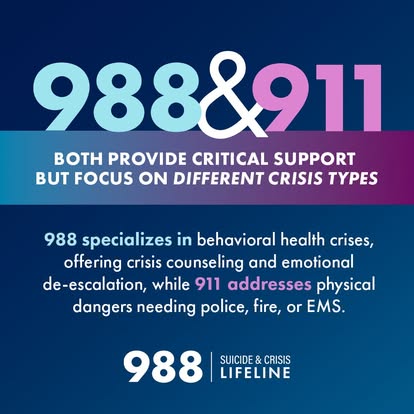September is Suicide Prevention Month and with the mental health challenges so many of our adolescents and teens are facing, it is more important than ever for parents to understand the signs of depression and be proactive in having conversations about suicide.
What to look out for
If you are worried about your child, consider the warning signs. From helpguide.org:
|
|
“If you’re unsure if an adolescent in your life is depressed or just ‘being a teenager,’ think about how long the symptoms have been present, how severe they are, and how different the teen is acting from his or her usual self. While some growing pains are to be expected as teenagers grapple with the challenges of growing up, dramatic, long-lasting changes in personality, mood, or behavior are red flags of a deeper problem.”
How to talk about it
If you see any of these “red flags,” it is critical to start a conversation. You must remain calm, be loving and empathetic, but also direct and honest.
Use some of these questions to get your teen talking:
- Encourage your adolescent to describe what they are feeling. Example: “I had no idea things were so bad for you. Talk to me about what’s going on.”
- Ask your teen to share whether a specific incident is causing their distress. Example: “What happened? I want to know more. It might help to talk about it.”
- Be careful not to offer advice that may be perceived as empty or unhelpful, such as ” You should appreciate all you have in life,” or “I think you’re overreacting.”
- Although it may be difficult, at this point, accept what your teen tells you, without verbalizing judgment or disagreeing with their statements or feelings.
- Ask if your teen has thoughts of hurting themselves or ending their life.
- Ask whether they have a specific plan for suicide – the more specific the plan, the higher the risk.
If you have a better idea of how your teen is feeling and what has led up to this, it will be easier to know what to say to help keep them safe. Use the suggestions that best fit you, your child and the situation:
- Let your teen know you understand how miserable they are feeling. Example: “It sounds like you’ve given up,” or “I think you feel there’s no way out.”
- Remind your teen of your unconditional love for them.
- Talk to your teen as calmly as you can.
- Let your teen know you are deeply concerned about them.
- As compassionately as possible, say to your teen, “I do not want you to hurt yourself and I will do everything possible to keep you from attempting suicide.”
- Gently point out that suicide is not the only solution. Example: “I know there are options that could help. I’d like you to at least try them.”
- Promise to be there for your teen and to do whatever it takes to get them through this. Example: “You are not alone, I am here to help you now that I understand how bad things really are for you.”

If you or someone you know is in an emergency and in imminent physical danger, call 911 immediately. If you are in crisis or are experiencing difficult or suicidal thoughts, call, text, or chat the Suicide and Crisis Lifeline at 988.


